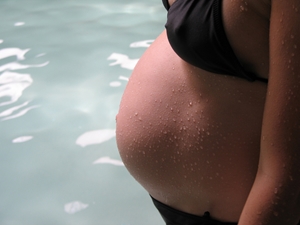The very idea of water birth is a bit strange, if not off-putting, to some people, but once a person becomes informed about the process they generally see it as a viable option. Once you’ve assured yourself that it’s a legitimate procedure, the question remains whether water birth is right for you. Are there any discernable benefits or is it just a fad?
This is how they did it
Far from being a trendy mom-of-the-moment thing to do, water birthing has been around for a long time. According to Janet Balaskas, an author and childbirth educator, South Pacific Islanders historically gave birth in shallow sea water, and there are stories of Egyptian pharaohs having been born in water. In the modern world, the South American nation of Guyana is a place where women give birth is a designated spot in a local river.
While it’s not exactly new, it’s relatively new to the western world. The first recorded water birth in the western world is supposed to have taken place in France in 1803 when a women was experiencing a particularly difficult labor and she was placed in a warm bath tub, which helped ease the baby out.
A good experience for mother and child
In the 1970s, water birth came into common practice in Russia and France, among doctors and midwives looking for ways to make the transition from the womb to the world as easy as possible. Going from the warmth of the uterus into a similar environment that’s been recreated in a bath tub is said to be less traumatic for a baby than being birthed into the open air.
Some doctors posited that the way in which a baby is brought into this world can directly impact the type of person the baby grows up to be. The process is also supposed to help ease the pain that comes with childbirth for the mother as well. Midwives and doctors reported that babies born in water cried less, were more likely to make eye contact and latched on to the breast for feeding more easily.
Staying safe and doing it right
While the holistic nature of water birth may lead some to believe that it’s something that occurs exclusively at home, many hospitals have installed birthing pools. Water births are nearly mainstream at this point, and modern health care is adapting to this trend. While home births are an option, it’s recommended that no matter where a woman gives birth, the vital signs of the fetus are monitored throughout. This is a good reason to find a hospital near you that can accommodate a water birth long before your due date. If you do decide to give birth at home, Divine Caroline recommended that no matter how low risk your pregnancy is, you should have a midwife present
and go to the hospital at the first sign of difficulty.
If you have any issues that may contribute to having a high risk pregnancy it is not recommended that you attempt to give birth at home in water or on land.
